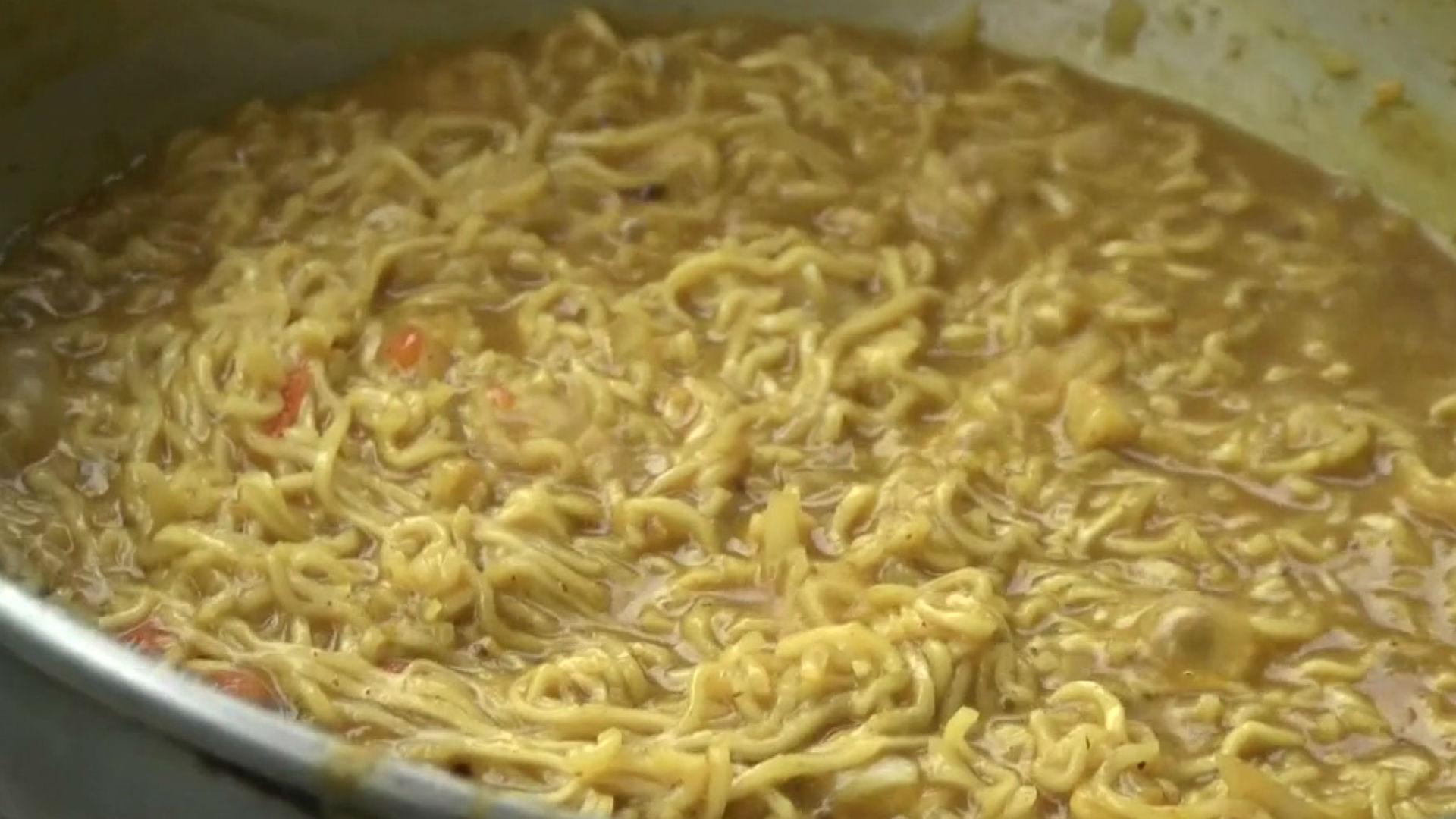Memes make light of India Maggi ban
- Published
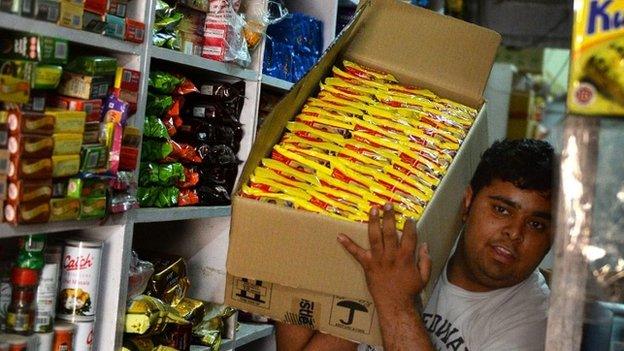
Several major grocery chains have said they are taking the noodles off the shelves
An official ban on Maggi noodles in the Indian capital, Delhi, has sparked humour and public health concerns on social media platforms like Twitter.
Authorities in Delhi on Wednesday banned the sale of Maggi noodles for 15 days after high levels of lead were found in batches tested there and in the state of Uttar Pradesh.
On Thursday, authorities in the Himalayan state of Uttarakhand also banned the snack "in public interest", reports say, external.
Nestle India has denied that its noodles are unsafe or unhealthy.
The ban is getting prominent coverage in the media and also on social media platforms.
Several hashtags like #Maggi, external, #Maggiban, external, #Maggiinasoup, external, #MaggiKeSideEffects, external have trended in the past few days.
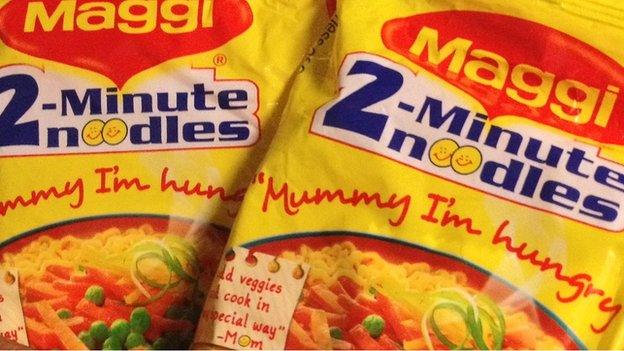
Maggi noodles are hugely popular in India
"The two-minute death of India's favourite noodle brand," reads the headline on one the Firstpost news website, external.
It highlights why the ban on "just a noodle brand" has sparked such massive social media reaction and media coverage.
As one food expert said on a TV channel, Maggi "is a little more than noodles" for many Indians.
It is hugely popular with school and college students, and Nestle's "two-minute" advertising campaign stressing the ease of cooking the instant noodles have made them a household name in India.
"Maggi has been my companion in all my travels. I have travelled in southern India's coastal areas, in the Himalayan regions, and in the dusty plains of central India, Maggi has always been within reach," says Delhi-based marketing executive Rohit Raman.
Maggi "becomes the cheapest and easiest thing to eat when you can't afford to have a proper meal for whatever reason", he adds.
So is he going to continuing eating Maggi?
His colleague Virendra Singh says that many, including him, have taken a temporary break from the snack.
"We are just waiting. There is no way we are going to have anything that is unsafe. But at the same time, we hope that this ban will help Maggi and other brands realise the importance of public health," he says.
Others have taken to Twitter to give their "humorous take" on the ban.
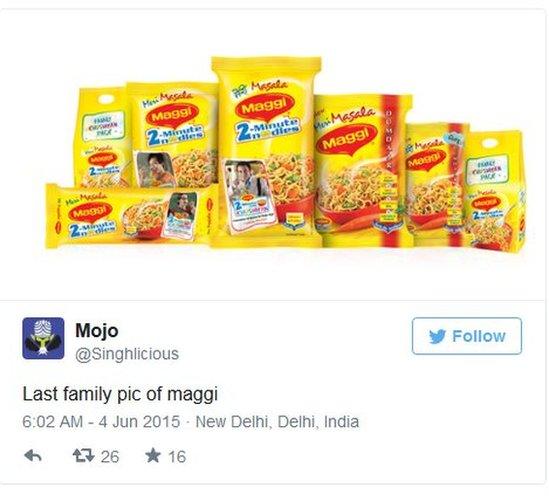
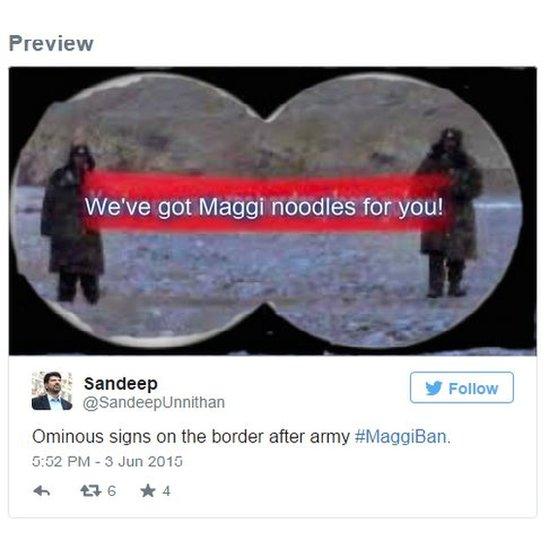
Reports say some units of the Indian army has also banned Maggi noodles.
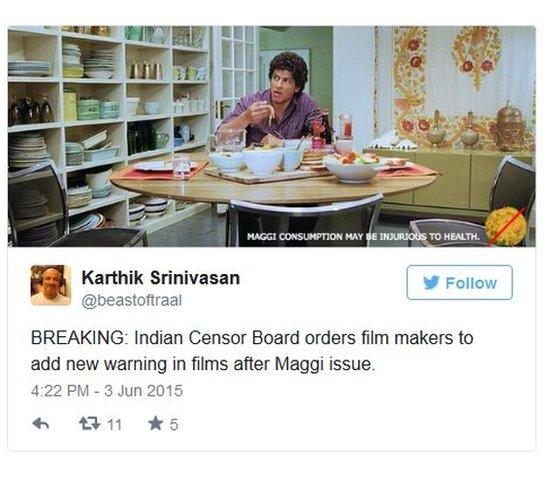
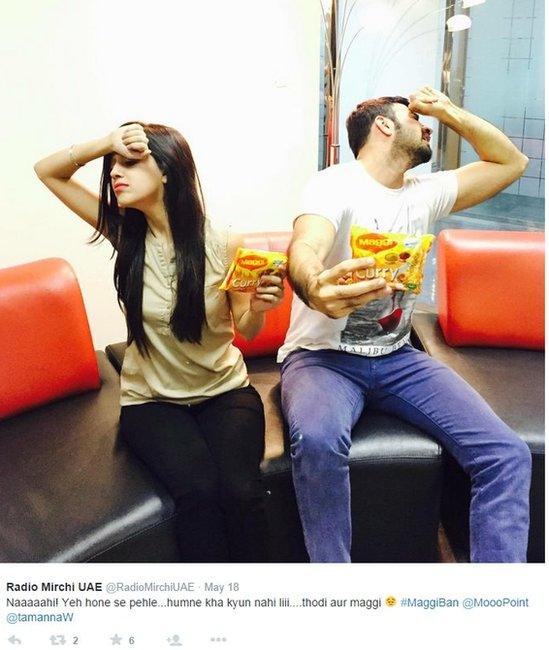
A distraught couple wonders: "Why didn't we eat some more Maggi before it was banned."
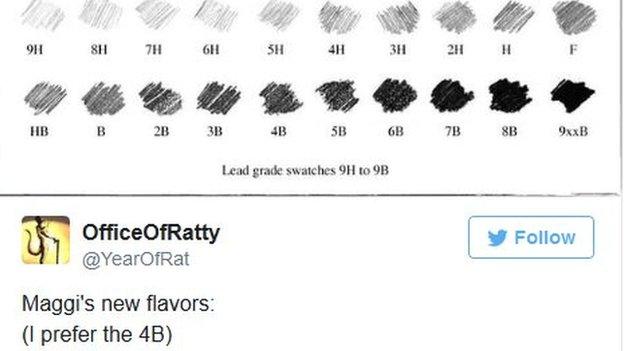
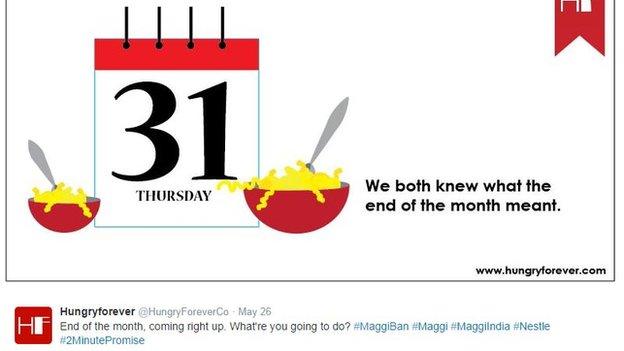
But other Twitter users and media reports have taken the discussion beyond humour, highlighting the impact of the ban on the vendors who make their living by selling Maggi.
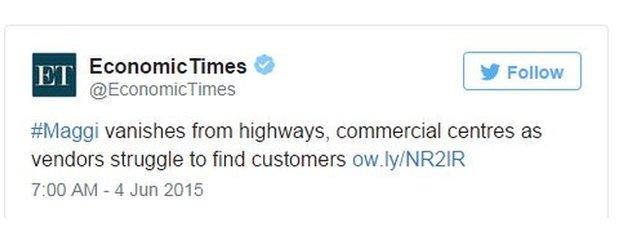
For others, the ban appears "overhyped" because they feel the authorities have not done enough to tackle other important issues on public health.
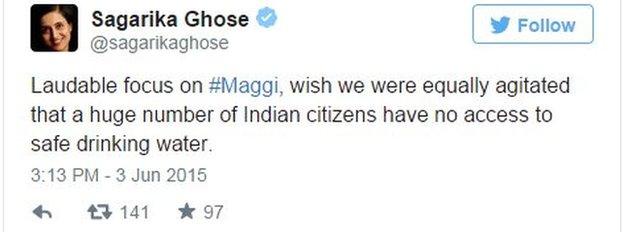
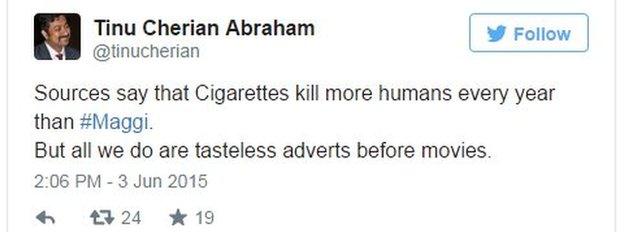
BBC Monitoring reports and analyses news from TV, radio, web and print media around the world. You can follow BBC Monitoring on Twitter, external and Facebook, external.
- Published21 May 2015
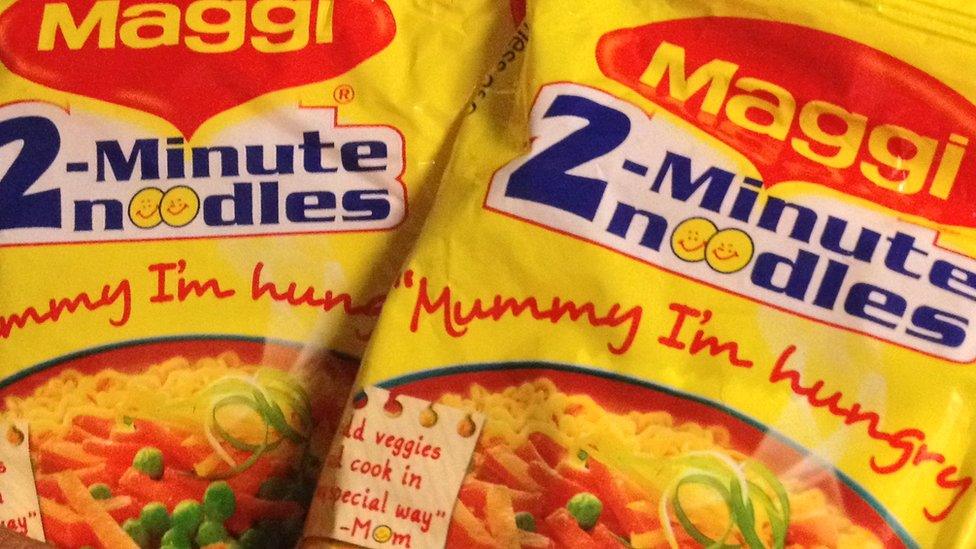
- Published1 June 2015
